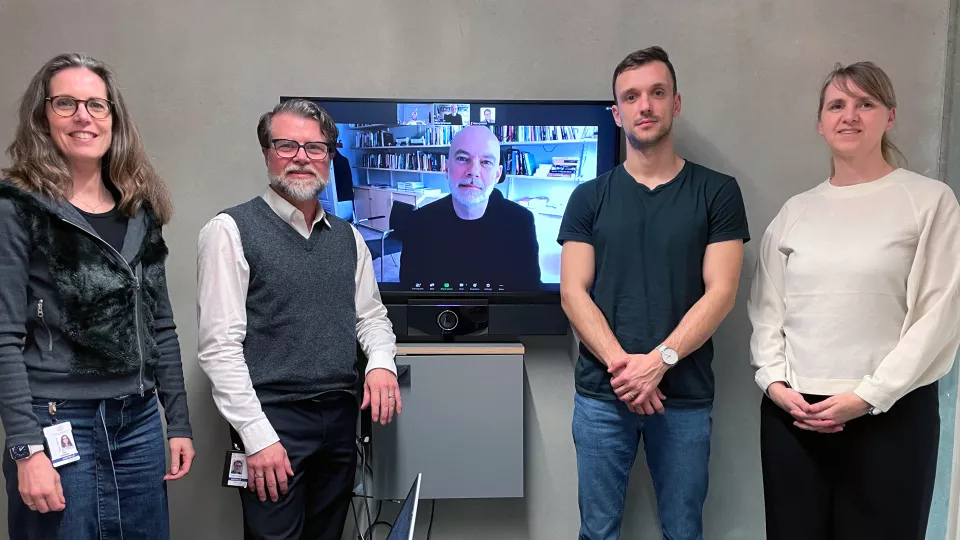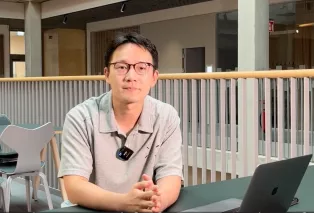Researcher Oskar Jonsson leads the one project, which was granted SEK 250,000 in the call: "Inclusive Living Environments to Attract the Joy of Movement and Promote Physical Activity for Proactive Ageing: Theory and Method Development and Full-scale Practical Application".
– Usually, most things to do with ageing are seen as a responsibility for healthcare or social services, and not as a matter for urban planning or housing development. Housing and residential areas should be health-promoting and inclusive for all ages, sizes and abilities. Decision-makers and the housing sector must take more interest in today’s and future demographic shifts, public health requirements and think and act creatively and long-term, he says.
Want to motivate movement
The co-applicants are Professor Eva Ageberg, Professor Mikael Johansson and Associate Professor Andrea Dell'isola. The project started the other week and will explore concrete ways to promote health and well-being through designed living environments, where older people in Sweden today live a very sedentary life, generally more than nine hours a day.
– We want to investigate how interactions between physical properties in living environments and individuals can promote health, enjoyment of movement, prevent falls, disabilities and diseases, says Oskar Jonsson.
The idea is to then give recommendations for how movement and physical activity can be motivated and stimulated in the best way through designed living environments, with a focus on people with sedentary behavior, who feel anxiety and insecurity when it comes to movement.
AI in proactive ageing
Xu's research project receives SEK 100,000 and started last week under the title: "Leveraging generative artificial intelligence to transform "disease systems" into health systems: a person-centered approach to support proactive ageing".
– I’m excited to have received a seed funding grant to explore the role of Generative Artificial Intelligence, GenAI, in health promotion. This grant will enable us to conduct research that builds evidence and fosters collaborative partnerships to integrate GenAI into proactive ageing strategies, he says.
Platforms such as ThinkAI and AI Lund will be used for outreach activities, but AI is not used within the project. Instead, it is about investigating why AI is seen as a promising solution for the health of the elderly and also what problems AI can entail.
The co-applicants are Arlind Reuter, Susanne Frennert and Helena Sandberg and the project involves, in addition to Faculty of Medicine, also Faculty of Engineering (Department of Design Sciences), Faculty of Social Sciences, (Department of Media and Communication Studies). It also involves an international partnership with the National University of Singapore and SingHealth, the largest group of public health institutions in Singapore.
– This project fosters new interdisciplinary collaborations, bringing together specialists in design, media, gerontology, public health and AI ethics, says Xu.

